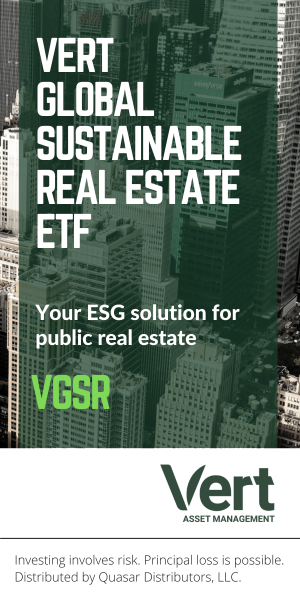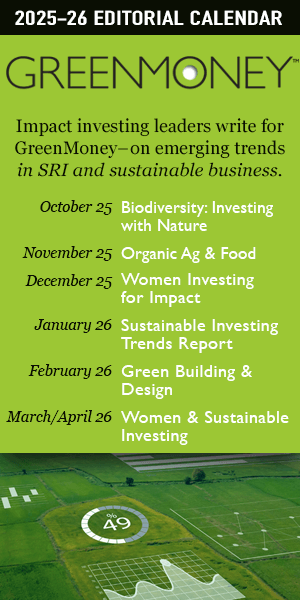New Report From the Sustainable Investments Institute Finds Growing Investor Support for Board and Workplace Diversity, Sustainability Reporting and Political Spending Disclosure
Investors are filing more environmental and social policy resolutions in the United States than ever before, and more shares are supporting them, new research from the Sustainable Investments Institute (Si2) finds. As of August 20, a total of 401 sustainability related shareholder proposals have been filed at U.S. companies in 2013, already above last year’s total of 393. In addition, average support levels have increased from 18.4 percent in 2012 to 21.3 percent this year and will likely surpass the previous all-time record of 20.1 percent in 2011. The number of high votes above 20 percent also is on the rise, nearing 100 this year, up from 79 in 2012 and 91 in 2013. Only a decade ago, average votes hovered around 10 percent and fewer than 30 votes exceeded 20 percent backing.
“The proxy season results this year show a critical mass of investors think companies need to tell more about how they manage sustainability risks and what they are spending in elections and efforts to influence lawmakers and regulators. It’s also very clear that board diversity and equal employment are top investor priorities,” said Si2 Executive Director Heidi Welsh.
“Companies can’t ignore these votes and the growing number of negotiated agreements shows they increasingly are listening to their investors. This trend puts more pressure on firms that don’t pay attention to these initiatives,” she added.
Resolutions on board and workplace diversity, sustainability reporting and political spending disclosure have led the pack this year. These three topics have earned all the top 10 votes so far and continue to post the strongest support levels. Calls for disclosure of political spending, however, trumped all in the numbers of filings, accounting for nearly a third of the total.
Highest scoring proposals: Four of the resolutions have earned majority votes in 2013. Three were at fertilizer maker CF Industries Holdings — concerning board diversity (50.7 percent), political spending (66.0 percent) and sustainability reporting (67.0 percent, the highest ever social vote). The other was at aerospace and defense firm Alliant Techsystems on lobbying disclosure (64.8 percent). Eleven proposals opposed by management have gotten more than 50 percent since 2010, in a new era of high votes and increased stakeholder negotiation about social and environmental issues.
Record support: Investor support for dissident resolutions on sustainability issues has increased to its highest level ever in 2013, after dipping a little in 2012. Votes have been on an inexorable climb for the last 10 years, illustrating growing traction among many mainstream investors for more disclosure and action. More than half of all the 175 votes so far this year — 98, or 56 percent of the total voted — were above 20 percent, up from 45 percent of the total voted on last year at this time.
Negotiated agreements: Investor advocates withdraw more than one-third of all proposals they file, in proportions that recently have been growing. Si2’s analysis of filing trends and results shows that proposals earning high levels of investor support are the most likely subjects for negotiation. In the last three years, proposals about diversity (on boards and in the workplace) and sustainability reporting have had the highest average vote levels and withdrawal rates.
Omissions: Companies have been less successful in their attempts at the SEC to keep resolutions off proxy statements in 2013, with just 12 percent of the proposals excluded under provisions of the shareholder proposal rule compared with 16 percent last year. “This could mean proponents have gotten better at framing their proposals, but it also may mean the SEC is taking a more expansive view of what shareholders should consider,” Welsh said.
Most common sponsors: The most prolific sponsors of shareholder proposals are social investment firms, pension funds and faith-based investors, according to Si2’s analysis of 1,600 proposals filed since 2010. Individuals, unions and single-issue groups are important proponents, but they don’t file as many resolutions.
Championing diversity: Shareholder proponents continued efforts to encourage greater action on board diversity have grown. Filers cemented a record number of withdrawal agreements with companies this year, aiming to address longstanding disparities in gender and racial composition of U.S. boards. All told, diversity proposals have had the highest average support levels in 2013 and in the last three years.
Demanding sustainability reporting: Calls for companies and their suppliers to publish sustainability reports produced the second highest level of support from investors. Most requests pointed to the Global Reporting Initiative (GRI) guidelines as the preferred reporting format. Many companies agreed to extend monitoring and reporting into their global supply chains — a key objective of the proponents was made all the more pointed by events like the April factory collapse at a garment factory in Bangladesh.
Calling for disclosure of political spending: Investor interest in the disclosure of all corporate efforts to influence elections, laws and regulators ballooned further in 2013. Just under one third of all the environmental and social proposals filed pushed for reports on governance and contributions regarding political campaigns, as well as lobbying that takes place outside of elections. Lobbying transparency requests increased, with 60 proposals. Half of the 18 proposals earning more than 40 percent dealt with these concerns, while proponents racked up 28 withdrawals after reaching accords with management in nearly every instance. Simmering in the background is a continuing push for a new SEC rule that would require all public companies to disclose what they spend during elections. “The crunch issue is how much companies are willing to say about their indirect spending — what they give to trade associations and non-profits who try to influence politics,” Welsh observed.
The Sustainable Investments Institute (Si2)
About Si2: The Sustainable Investments Institute (Si2) provides institutional investors with in-depth, impartial analysis of environmental and social policy shareholder resolutions filed at U.S. companies. It also is an incubator for empirical research on emerging sustainability topics and corporate and investor responsibility issues. More about Si2 at www.siinstitute.org
To download the full report including charts and graphs as well as Proposals Pending for Late Season Votes go to-
















